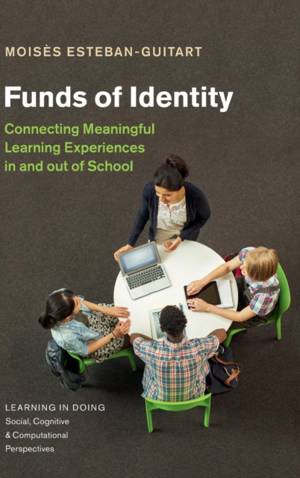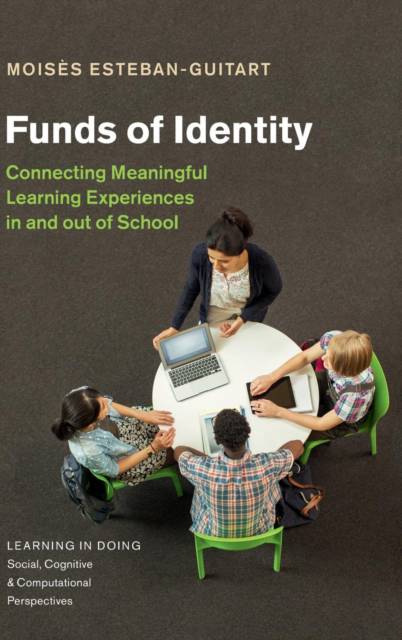
- Afhalen na 1 uur in een winkel met voorraad
- Gratis thuislevering in België vanaf € 30
- Ruim aanbod met 7 miljoen producten
- Afhalen na 1 uur in een winkel met voorraad
- Gratis thuislevering in België vanaf € 30
- Ruim aanbod met 7 miljoen producten
Zoeken
Funds of Identity
Connecting Meaningful Learning Experiences in and out of School
Moisès Esteban-Guitart
€ 187,45
+ 374 punten
Omschrijving
Drawing on research conducted mostly in Catalonia (Spain), Moisès Esteban-Guitart outlines a distinct vision of education enhanced by students' identities, which leads to a discussion of the sociocultural factors that shape the processes of learning. He brings these ideas to life by examining traits of a mobile-centric society, the present-day ecology of learning, and his three metaphors of learning (connecting knowledge, connecting minds, and connecting communities). He then suggests a number of basic principles regarding learning for the twenty-first century based on prior literature in the learning sciences. He presents the terms 'funds of identity' and 'meaningful learning experiences', and reviews the funds of knowledge approach and the Vygotskian basis for understanding identity. In the second part of the book, he illustrates a number of strategies for detecting students' funds of identity and their meaningful learning experiences, and describes some practical experiences based on the theoretical framework he adopted.
Specificaties
Betrokkenen
- Auteur(s):
- Uitgeverij:
Inhoud
- Aantal bladzijden:
- 150
- Taal:
- Engels
- Reeks:
Eigenschappen
- Productcode (EAN):
- 9781107147119
- Verschijningsdatum:
- 18/08/2016
- Uitvoering:
- Hardcover
- Formaat:
- Genaaid
- Afmetingen:
- 152 mm x 229 mm
- Gewicht:
- 390 g

Alleen bij Standaard Boekhandel
+ 374 punten op je klantenkaart van Standaard Boekhandel
Beoordelingen
We publiceren alleen reviews die voldoen aan de voorwaarden voor reviews. Bekijk onze voorwaarden voor reviews.











